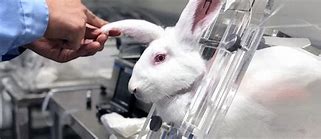Only one in 20 therapies tried on animals is eventually approved for testing on humans, according to a groundbreaking study from the University of Zurich.
The study is based on the findings from 122 investigations into 367 therapies for 54 human diseases.
“It seems small, but certain treatments can be vital to some individuals,” Benjamin Ineichen, the study’s lead author, said in an interview with Keystone-ATS.
The findings were published in the academic journal 'PLOS Biology.'
While researchers have long understood the low transition ratio, this study marks the first time precise figures have been available.
Half of the 367 therapies tried on lab animals led to human clinical research, and 40% progressed to randomised controlled trials.
On average, it took five years for the first human trial to occur, seven years for randomised controlled trials, and a decade to gain regulatory approval. In some cases, it could even take several decades before a therapy was trialled on humans.
The researchers also discovered that 86% of therapies successfully tested on animals were also effective in humans.
Nonetheless, after a decade, 95% of therapies tested on animals had never been authorised for human use.
“It is very likely that a lack of quality in some animal studies has led to falsely positive results, meaning that the data suggests a therapeutic effect where there actually isn’t one," Ineichen explained. "This subsequently results in these drugs being discounted during rigorous human testing.”

